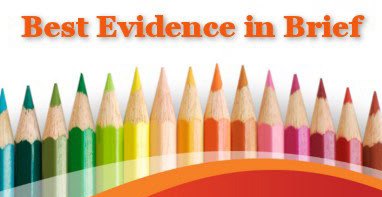A high-dosage math tutoring program, modeled after Saga Education in the U.S., was developed in the Netherlands through a collaboration of schools, funders and providers to support students from low-income families.
The program was delivered by a tutor to student pairs four times a week for an entire school year. In the sessions tutors reviewed mathematical concepts introduced by the teachers to the whole class, as well as personalized the instruction based on student needs.
A recent evaluation assessed the effectiveness of this program in fourth and fifth grade. The study randomly assigned 434 students to the experimental group or to the control group for one school year. Using the national math and reading tests to assess the effectiveness of the program, results showed a significant improvement in math achievement (ES = +0.28) in both grade 4 and 5.
No effects were found in reading. The authors’ conclusion affirms that this high-dosage math tutoring program was effective and scalable, bolstering the academic success of low-income students.

